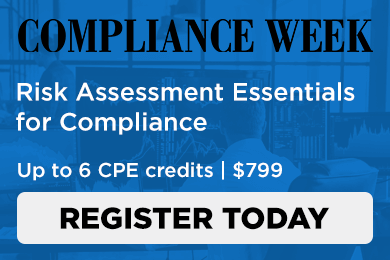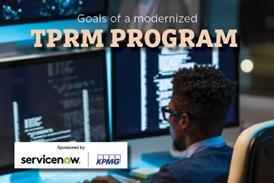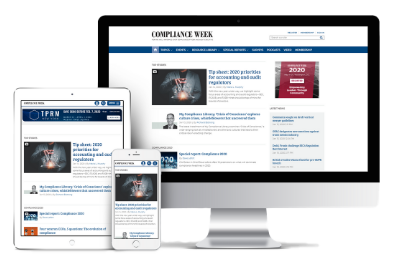With the improving economy and increased regulatory burden, accountants and auditors are in high demand once again. And a shortage of talent to meet that demand could continue to push up audit costs.
“There’s no doubt, it’s truly a war on talent,” says Paul McDonald, senior executive director at Robert Half. While the general unemployment rate is at 5.9 percent, for accountants and auditors, it’s 2.4 percent. “And that number continues to decline,” he says. Regulatory demands are increasing the workload, especially in the financial services sector. “A lot of it is regulatory and compliance work.”
Staffing shortages were most acute at the onset of efforts to comply with the Sarbanes-Oxley Act, says Richard Chambers, president and CEO of the Institute of Internal Auditors, when companies simply had to cope with large numbers of vacant positions. But he sees the crunch now in specific sectors and geographic areas. “New York has chronic challenges because of the heavy emphasis there on financial services and the compensation rates there,” he says. Atlanta, Charlotte, and to some extent Chicago are also seeing a tighter accounting labor market, Chambers says.
For internal audit specifically, tight staffing arises not only because of the shortage of accounting talent but also because of changes in the demands on internal audit that require specific operational or industry experience, Chambers says. “If companies were looking just for accounting talent, it might be easier,” he says. “If you’re trying to recruit specific skills in a specific market, it might be a little tight. Some companies have to broaden the search outside the immediate geographic area.”
“If companies were looking just for accounting talent, it might be easier. If you’re trying to recruit specific skills in a specific market, it might be a little tight. Some companies have to broaden the search outside the immediate geographic area.”
Richard Chambers, President, Institute of Internal Auditors
Costs are on the rise as a result of the tight market, says Trent Beekman, senior vice president at staffing firm Parker & Lynch. “Within reporting and auditing, the cost has gone up in the range of 15 to 20 percent in the last 12 to 18 months because of the labor market alone,” he says. That’s taking into account not just salary costs, which Robert Half reports as rising 3.5 percent for accounting and auditing in 2015, but also the “soft costs,” of recruiting, training, staffing transition, outside contract services, and other needs. Audit Analytics reported recently that external audit fees took an upward turn in 2013 for the first time in several years, and audit experts cited the tight labor market as a factor.
Talent Exodus
While the regulatory demands are creating more work for accountants and auditors, some are wondering if it also discourages accountants and auditors for remaining in or entering the profession. Accounting has become more judgmental, with more focus on difficult estimates, just as regulators have clamped down on auditors with the creation of the Public Company Accounting Oversight Board and its increasingly arduous inspection process. Add to that the constant threat of litigation and the requirement for audit partners to rotate assignments every five years, which sometimes necessitates relocation, and it’s easy to see why some accountants are heading for the door.
“The profession is aware of some of the perceived challenges facing those who choose to enter the auditing field,” says Cindy Fornelli, executive director of the Center for Audit Quality. “The profession is making its way through a time of regulatory change, including mandated audit partner rotation, and responding to an intensive inspection process. It has been a time of transition, which has impacted the profession in both positive and negative ways.”
Accounting firms say they aren’t seeing droves of late-career partners retiring early as a result of the increased demand, but firms do concede they have a tougher time retaining young hires and keeping them in the pipeline toward the partner track. “The turnover is creeping up,” says Jennifer Busse, a talent acquisition leader for McGladrey. “It stayed flat for a couple of years in a flat economy, but we are starting to have an uptick.”
PwC feels it too. “We continue to learn and respond to what it takes to be successful in the current environment where expectations on all of our stakeholders are very high,” says Donald Christian, assurance human capital leader for PwC. Disturbed by the rapid departure of “Millennial” generation recruits, the firm launched a global study to identify the issues. It turns out that generation doesn’t buy into the traditional accounting firm model to career achievement, which is built on long hours in the early years in pursuit of the partnership payoff later in the career.
WORLDWIDE PROFESSION
Below, the AICPA offers some tips on how to “position the CPA as a premier of the accounting and finance profession throughout the world.”
In a world of increasing interdependence and connectivity, the CPA is a premier accounting and finance designation. A growing number of CPAs believe it is increasingly important for the profession to be aware of global business issues and trends. Globalization offers unprecedented opportunities for the profession to expand into new markets. Yet globalization also brings challenges including greater competition for CPAs, both in the U.S. and internationally.
Technology will enable U.S.-based businesses of any size to conduct business abroad, while also enabling new overseas competitors, including non-CPA accounting professionals, to gain access to the U.S. market. Research shows that many CPAs anticipate continued outsourcing of accounting services and business processes. Additionally, organizations will be able to hire employees from a global workforce, as the CPA designation grows.
CPAs also will face increasing complexity with varying standards and customs across the globe. CPAs must navigate through different communication challenges and business practices while maintaining the highest ethics and standards that define the CPA profession. As global business becomes more complex, there will be an opportunity for CPAs to become the leading experts for all financial needs.
CPAs believe that maintaining the rigor and quality of the CPA credential will help uphold its positive perception and help the profession thrive overseas. Maintaining high standards for acquiring the credential and placing increased emphasis on continuing education as well as developing soft skills will help position the CPA as one of the world's premier designations.
IMPACT ON THE PROFESSION
1. CPAs must be increasingly aware of international business issues and trends.
2. CPAs must assess the trend toward outsourcing overseas and create opportunities to expand services to serve these markets.
3. CPAs must continue to market the quality and value of their services in order to expand and thrive globally.
Source: AICPA.
Adapting to the Younger Set
The study found Millennials are more concerned about work-life balance, with more interest in flexible work schedules and less concern over pay increases and promotion than the generation before them. They are more interested in varied work opportunities, including assignments abroad, more in tune with the latest technology, and focused on having the right support and feedback. PwC has responded with recruiting and retention strategies that include interactive training, varied work assignments, increased use of technology, and various other innovations to adapt to the new workforce expectations, including pursuing more diversity, says Christian. BDO USA says it has responded to the demand for more varied work by using its network of member firms to facilitate inbound and outbound assignments.
Busse says she sees the generational effect, with younger hires less interested in sticking with public accounting, opting for better pay or fewer hours in other career tracks, especially in private industry. “Staffing agencies are crazy busy right now,” she says, as auditors prepare for the busy season of year-end audit work. “It might even be easier for private industry to hire right now.”
Turnover in middle levels, such as accountants with four-to-seven years of experience, creates great opportunity for growth for those who stick it out, says Jeffrey Agranoff, a partner with audit firm Friedman. “We identify superstars early, and put them on a much faster partner track now,” he says. Staffing and pricing engagements gets tricky with the drain in the middle level as well. Partners or senior accountants with more experience are “working down” more than they’d like, he says, and that can mean higher billing rates to clients.
The good news, according to the American Institute of Certified Public Accountants, is that universities are turning out growing numbers of graduates who are eligible to pursue the CPA credential, says Rebecca Mahler, senior manager. The number of students pursuing accounting degrees dropped off in the early 2000s, right around the time many states began increasing the number of credit hours required to earn a bachelor’s degree in accounting, but the number of both bachelors’ and masters’ degrees awarded nationally spiked in 2012 to an all-time high since the early 1970s.
McDonald at Robert Half says the key for companies that are competing for accounting and audit talent is to pay attention first and foremost to retention. “Retention is easier than attracting,” he says. “Managers should be sitting down and doing career mapping with their employees and reviewing salaries more frequently. What are the wants and desires of that individual? There are too many choices out there right now.”
Websites
We are not responsible for the content of external siteshttp://www.aicpa.org/InterestAreas/AccountingEducation/NewsAndPublications/DownloadableDocuments/2013-TrendsReport.PDF
http://www.manpowergroup.us/campaigns/talent-shortage-2014/assets/pdf/2014_Talent_Shortage_WP_US.pdf
http://www.multivu.com/players/English/7074552-robert-half-2015-salary-guides-3-8-percent-increase-professional-occupations/
http://www.aicpa.org/Research/CPAHorizons2025/DownloadableDocuments/cpa-horizons-report-web.pdf
http://www.startheregoplaces.com/
https://www.thiswaytocpa.com/
http://www.aicpa.org/press/pressreleases/2014/pages/new-tools-cpa-firms-accounting-diversity.aspx
http://www.complianceweek.com/sites/default/files/pwc-nextgen-summary-of-findings.pdf
http://www.complianceweek.com/sites/default/files/Career%20Map.pdf












No comments yet